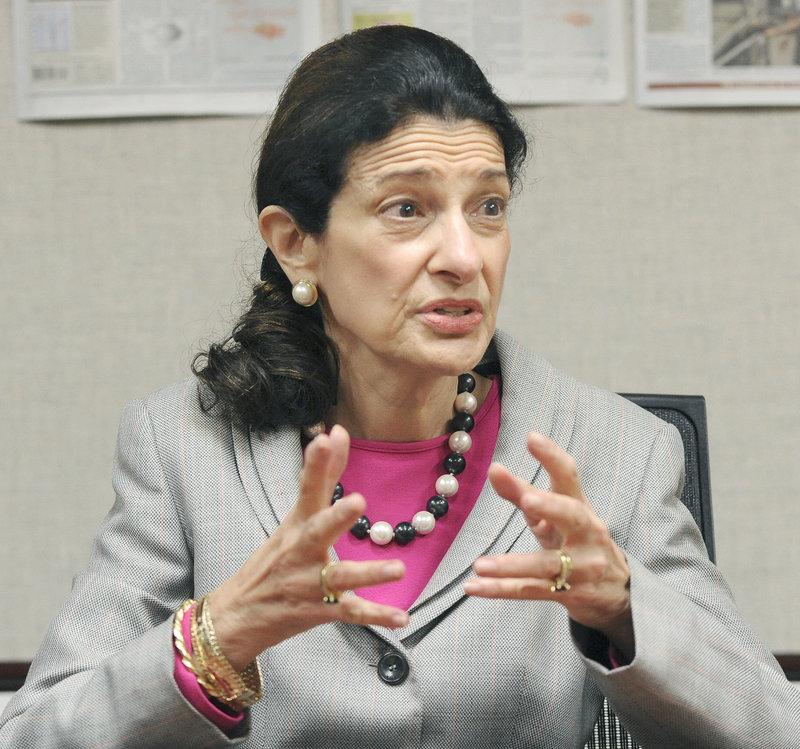The Cape Elizabeth High School Class of 1961 held its 50th reunion this past weekend. It being the 50th, the organizing committee, of which I was a member, planned three days of festivities to give old classmates plenty of opportunity to reconnect, reminisce and celebrate.
Over the course of the weekend, some 40 of the 62 remaining grads, many with spouses, attended one or more of the activities. Even our Turkish exchange student, Akin Ozden, made it back for his first visit since graduation.
Most of us were able, quite surprisingly, to identify classmates we hadn’t seen in many years. Some of us were moved to recall memories remarkable in their detail – though fact-checking was not something we worried a great deal about in this setting.
The Class of 1961 came of age in another era in America. We consider ourselves fortunate to have grown up in the ’50s and early ’60s – a truly golden age for post-World War II America. The economy was booming, the middle class was enjoying its greatest expansion in U.S. history, and towns and cities were places where we roamed without inhibition. Many of us were children of parents who had not been to college. Yet it was expected that we would go to college – and most of us did.
We reflected on this earlier time as we discussed the very different America in which we live today. It is an unfortunate contrast. For those of us who grew up in an era where optimism was a way of life, the 21st century has been a cruel awakening.
The spectacle of our elected representatives in Washington nearly bringing the country to ruin on a procedural motion to raise the national debt was, of course, fresh on our minds. But this tragic farce was only the latest in a series of examples that those in Washington do not represent the interests of America. Rather, they are hostage to the ideological wings of their parties and the big-money interests that fuel the crazy ideology that now dominates American politics.
Rational thought suggests that America has gone over the edge and is slowly sinking into an abyss. It is pretty clear what needs to be done to break the suction. However, the political will to do the right thing has been lost, perhaps irrevocably. as Sen. Olympia Snowe, one of the few “old guard” left, said after the latest crisis: “We no longer know how to legislate. Today, parties are only concerned about messaging.”
I see a tiny thread of hope. To move our current political process from messaging back to governing, we need to drain the money swamp that fuels much of this and change the electoral process so that the extreme wings of each party do not control the outcomes of primaries.
Last week, Howard Schultz, CEO of Starbucks, sent an email to his fellow CEOs suggesting that they should all refrain from making any political contributions until responsible leadership prevailed. He has the right idea.
Because our Supreme Court continues to rule that unlimited campaign spending is a First Amendment right, it seems the only way to remove the toxic effect of money in the political system is by a constitutional amendment. A constitutional amendment is a daunting task, but it has been successful at critical junctures of our history. This is one of those times.
As for moving away from the extremes of each political party, there are a few promising approaches being tested. California recently finished re-districting with political districts drawn by a nonpartisan commission. Such redistricting will likely lead to a better balance of both parties in more districts – a good thing that diminishes extreme partisanship.
The single open primary now being used in the state of Washington is meant to do the same thing. In a single primary, all candidates contest on one ballot. The primary is open to all voters. The top two vote-getters go on to the general election. Again, the theory here is that those candidates who appeal to a broader range of voters are more likely to achieve top positioning.
Time will tell how effective these approaches are. Some combination of these is badly needed if we are to regain an effective political system.
These kinds of fundamental remedies will take years to be effective. Time is slipping by. We have lost a lot in the past 50 years – we had better start to right the ship now. For my generation, it will be our last opportunity.
Ron Bancroft is an independent strategy consultant based in Portland. He can be contacted at: ron@bancroftandcompany.com
Send questions/comments to the editors.



Success. Please wait for the page to reload. If the page does not reload within 5 seconds, please refresh the page.
Enter your email and password to access comments.
Hi, to comment on stories you must . This profile is in addition to your subscription and website login.
Already have a commenting profile? .
Invalid username/password.
Please check your email to confirm and complete your registration.
Only subscribers are eligible to post comments. Please subscribe or login first for digital access. Here’s why.
Use the form below to reset your password. When you've submitted your account email, we will send an email with a reset code.